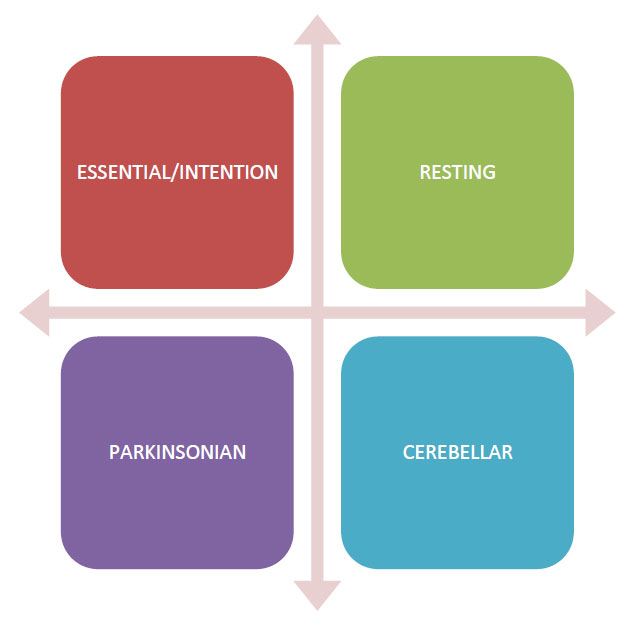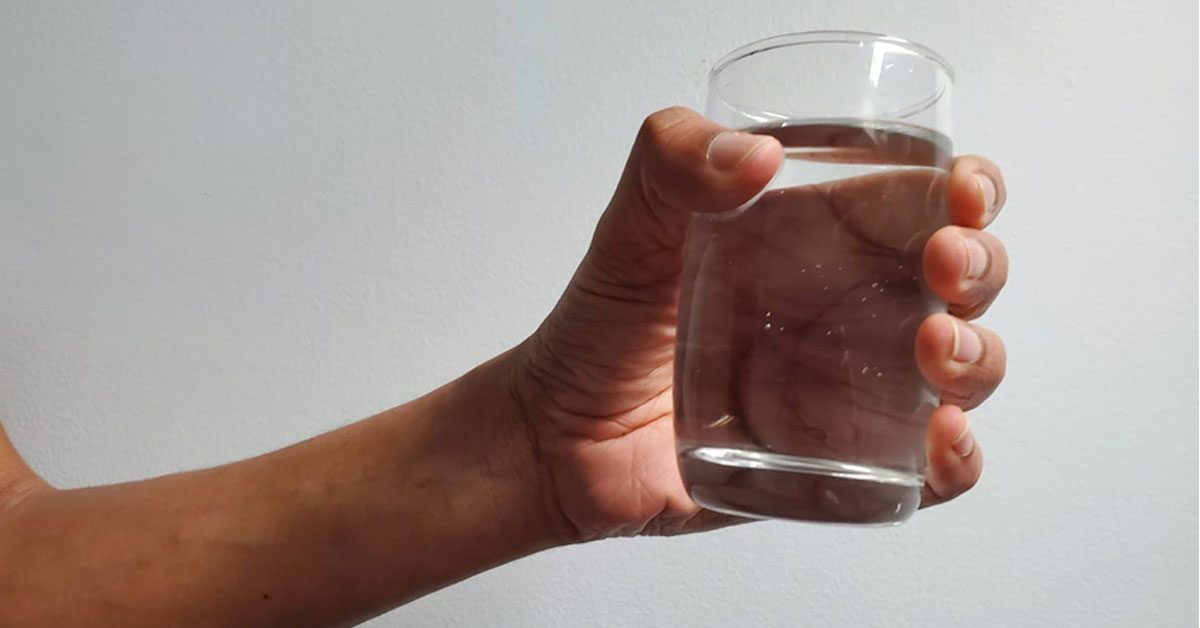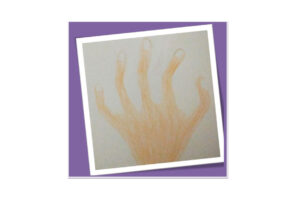Shaking movements of hands also called hand tremor is an involuntary trembling or quivering of your hand. Tremor can involve large groups of muscle fibers or small bundles of muscle fibers. Shaky hands vary in direction, amplitude, or intensity. Most of the time its rhythmicity, speed, timing with regard to rest and activity and parts involved varies. Shaky hands appear as a result of various physiological factors, anxiety, stresses, or any sort of stress-related pressures and also due to neurological impairments, and as an aftereffect of a disease, which in turn lead to shaking of hands, fingers, thumb, etc, while holding something.
In our day to day life, when we are exposed to a new social gathering, and we are the center of attraction of a party or function, or when we are having stage fright and have to give in speech or sing a solo song, etc, then we see that there is some anxiety and these hand tremors come as a normal phenomenon which we have to control and over a period of time, it can be made all right. If the hand tremors are intense and if it is noticed that waterfalls off or hot tea falls while holding a full cup and thus, it may be a sign of a disease and thus, requires investigation and a physician and neurological consultation to rule out the problem.
What are the reasons that cause hands to shake involuntarily?
There are various factors that can result in shaking hands or hand tremors. Direct and indirect factors contribute to shaky hands.
Psychological factors
- Anxiety
- Panicking
- Depression
- Stress
- Workload pressure
- Stage fear or fright
- Lack of sleep
Neurological factors
- Focal brain lesions
- Long periods of stable motor impairment (a few months or years)
- The main symptom of stroke or after effect of stroke
- After a thalamic stroke; thalamic infarction
- Parkinson’s disease
- Multiple sclerosis
- Brain injury
- Brain tumors
- Seizures or fits or epilepsy
Toxin intake that affects the brain and nervous system
- Alcohol abuse
- Drug abuse
- Metal intake ( Mercury intake)
Other factors that contribute to shaking of hands
- Genetic (familial eg-fear)
- Liver failure
- Alcohol withdrawal syndrome
- Intake of certain medications (a side effect of medicines)
- Hyperthyroidism or overactive thyroid glands
- Muscle weakness and fatigue
- Degenerative changes due to aging
- Decreased glucose levels in the body (hypoglycemia)
- Increased caffeine intake, which is a central nervous system stimulant
- Unknown reason (idiopathic)
What are the common types of hand tremors?

INTENTION TREMOR
A hand tremor becomes more apparent when a person attempts a voluntary or intentional movement such as holding something.
RESTING TREMOR
A type of tremor is more evident when the individual is at rest and it decreases while performing activities.
PARKINSONIAN TREMOR
Shaking of hands or hand tremors is a common early manifestation that usually occurs in one of the upper limbs; either right hand or left hand. It occurs at rest and involves a coarse pill-rolling movement of the thumb against the fingers that varies in intensity and distribution. Intentional or voluntary movement stops or reduces the tremor in some people; however, others may have tremors during voluntary movement as well.
CEREBELLAR TREMOR
Interruption of the cerebellar outflow pathway to other brain regions due to damage of cerebellum, which leads to shaky hands while trying to perform any voluntary action especially holding something.
Signs and symptoms of shaking movements of hands
Shaking movements of the hand is not a disease as such. clinically, the condition is characterized by a low-frequency tremor of the upper limb. It is a sign manifested alone or together with or without tremors of other body parts due to various causes. When hands shake or tremble while holding something or performing some other actions it denotes that there is some problem with the region of the brain that controls movements of the body. Tremors occurring on the right hand or left hand depends on the position of the lesion if the cause is a lesion of the brain. Tremors occur contralaterally i.e if the brain lesion is on the left thalamic region, the involuntary shaking movement is seen in the right hands; fingers, and thumb, and the client experiences it either during activities (like holding something) or at rest, etc. Depending upon the underlying cause shaking movements of hands can be acute and mild or chronic or severe.
Triggering factors
Sudden physiological changes in the body as a result of exhaustion, decreased blood glucose level, and emotional disturbances can trigger shaking of hands while holding something and the severity and intensity varies. Shaky hands can appear at any age, but it is most commonly noticed for the first time in adolescence and middle age group people (40-50 yrs). If there is any familial or genetic history of shaking movements of hands among parents, then it can be inherited for their children and might be noticed during the childhood days of children.
How to rule out the cause for shaky hands for effective management?
A very important clinical tool is a thorough history collection. The client’s history is collected based on chief complaints, present, and past medical and surgical illnesses, family and genetic history, and a complete physical examination along with checking vital signs (temperature, pulse, respiration, blood pressure monitoring) is carried out in the initial stage. There is no particular medical investigation to diagnose shaking movements of hands or hand tremors. Diagnosing shaky hands means to rule out other causes or reason that leads to shaking of hands while holding something or to find out why right-hand shakes and not left hand and vice versa. Thus various diagnostic tests are performed for the client.
✓ A complete neurological examination to assess the neurological function of the client
- Mini-mental status examination
- Cranial nerve function test
- Motor function test
- Cerebellar function tests
- Sensory function tests
- Reflex function tests
✓ Blood investigations for assessing
- Thyroid function test to rule out overactiveness of thyroid glands
- Toxin levels in the body to rule out alcohol and drug addiction and metal intake
- Metabolic disorders (low blood sugar levels)
- The side effect of medications; if any
- Other chemicals that induce tremors or shaky hands
✓ Non-invasive tests of structure
- CT scan to detect bleeding inside regions of the brain, identify lesions in various parts of the brain, infarction of the brain, etc.
- MRI which provides more detailed pictures than CT can detect multiple sclerosis, interrupted blood flow to the brain (cerebral infarction), congenital brain malformations, etc
✓ Electroencephalogram
- Measures the electrical activity of the outer layers of the brain. The results will be abnormal in case of metabolic disorders, toxic conditions (drug overdose), infections, etc.
Thus, with the help of various diagnostic tests and detailed examination, a physician will be able to identify the exact cause of shaky hands or shaking involuntary movements.
What are the different ways for managing shaking movements of hands while holding something?
As there are different types of shaking movements of hands, the cure rate also differs based on various factors. Most of the hand tremors cannot be cured completely and might be mild and not require treatment. The client experiencing shaky hands should be more cautious if the involuntary movements of your hand interrupt your daily living activities and worsens day by day, then it’s time for taking action for your health. Consulting a physician has access not only to the wide range of medications and therapies for emotional and physical problems but also can be a valuable guide to timely referral if you need to see a specialist. A specialist would identify the underlying cause for the shaky hand and thus manage the cause which in turn can relieve symptoms. Patients with mild and non-disabling abnormal involuntary movement are not given medication, in order to avoid the potential side-effects (both acute and chronic) of neuroleptic therapy.
Non-pharmacological management
Coping strategies and simple remedial advice may be helpful sometimes, like avoiding the computer mouse or a laser pointer, which can intensify the shaking movements. Clients should accept the problem of involuntary movement of hands and should be open to inform others regarding it to avoid others from becoming panic. With regard to intense concern, some people seek medical advice with mild symptoms to rule out any underlying severe disease such as Parkinson’s disease or brain tumor. Such people may not need medical treatment, but feel comfortable and be confident after confirming and accept the truth that their tremor of hands is not due to a more severe disorder and is not going to progress into one. Factors that worsen the tremor should be avoided whenever possible ( alcohol intake, drug use, overuse of caffeine, etc.)
As far as possible use heavy materials for holding and avoid lightweight holding cups, pens, empty shopping bags, etc which can intensify hand tremors or involuntary movements of hands.
Wrist weights can help to reduce shaking of hands.
Use of larger grip control utensil handles
Whole-body sound wave vibration therapy and acupuncture have shown positive effects for tremors.
For clients with parkinsonian tremor (resting tremor ), it is advisable to hold change in your pocket or squeeze a small rubber ball. Use both hands to accomplish tasks. Relax your body by lying on the floor with your face downwards. Sleep on the side that has tremors.
What are your treatment options; to treat shaky hands?
To treat shaky movements of hands, fingers, and thumb the underlying cause should be ruled out and treatment should be focused to rectify the cause of hand tremors.
How to treat psychological factors?
Emotional illness always causes physical symptoms and shaking hands is a physical symptom in many people due to the emotional disturbances in them. Pills are not the only way to re-establish emotional stability, often the brain can improve its chemical balance without medical treatment, as long as the individual is given a safe and supportive environment with good nutrition, rest, exercise, counseling, vitamin supplements, music, etc.
Drug therapy
Anti-anxiety drugs like Benzodiazepines are the primary drugs used to treat generalized anxiety disorders. These drugs are almost immediately effective in reducing anxiety and thus shaking movements of hands resulting from anxiety. As it is addictive it should be taken only with the consultation of a physician. panic disorders require the use of high-potency benzodiazepines like clonazepam(Klonopin) and alprazolam(Xanax).
Anti-seizure drugs like Gabapentin and Topiramate may help in relieving shaking movements of hands in some clients caused by neurological and psychological factors.
How to treat neurological factors?
Neurological disorders are treated by the physician after confirming the disease with the help of various investigations and tests including radiological assessments (scans, MRI, CT). Based upon the disease diagnosis, treatments are prescribed by the physician which can, in turn, relieve abnormal involuntary shaky hands.
How to treat toxin intake that affects the brain and nervous system?
Alcohol addiction and drug addiction should be controlled or completely avoided, thus it will relieve tremors of hands. The intake of too much caffeine should also be avoided.
How to manage other factors that contribute to shaking hands?
Beta-blockers like propranolol (Inderal) and atenolol (Tenormin) blocks some most bothersome symptoms in individuals affected with social phobias such as fast heart rate and tremors of hands that they experience when giving a talk in front of a group or stage fright.
Thyroid hormone supplementation
Patients with overactive thyroid glands produce high levels of thyroid hormones, such people are at risk of developing psychological disturbances and tremors of hands, fingers, and thumb. Therefore, drugs to reduce the overproduction of thyroid hormones by the thyroid gland are effective in treating tremors.
Botox injection
Patients with hand tremors have shown a good prognosis (result) with botox injections. The injection focuses on the muscles that are involved in abnormal involuntary movement such as trembling and it relaxes the overactive muscles.
What are the various surgical techniques used for treating hand tremors?
Taking into consideration of the severity and intensity of hand tremors and when it causes the deleterious effect on day -to -day activities and considering the age of the patient the physician gives the surgical option for the client.
Deep Brain Stimulation
It is done to treat uncontrolled movements. Electrodes implanted in the region of the brain and it is connected to a pacemaker-like device that the client can control. These brain pacemakers send impulses to specific regions of the brain with the help of electrodes implanted, thus controls the movement disorders. As a result hand tremors reduce. Most commonly used as surgical management of Parkinson’s’ disease.
Thalamotomy
A thin wire with its tip heated to burn a small area of the thalamus is placed temporarily into the thalamus. After the burning of the tissue, the wire is removed from the thalamus. Thus, abnormal brain activity is reduced, and shaking movement of hands, fingers, and thumb subsides.
Focused Ultrasound
It uses a guided ultrasound to burn a small piece of the tissue in the thalamus which reduces the tremor of the hands.
Gamma Knife Surgery
It uses gamma rays (radiation) to burn a small piece of the tissue in the thalamus which reduces shaking movements of hands, fingers, and thumb.
These surgeries are associated with risks and complications and at the same time, there are chances of hand tremors reoccur. Internal bleeding inside the brain may be one of the complications which can result in stroke and related complications. Hence, tremor of hands or shaky hands is a sign or symptom indicating various underlying disorders. A lot of information is known regarding tremor and its management. But still, unknown factors contribute to the cause of tremors of hands.




